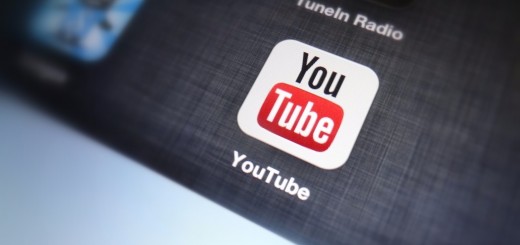10 ways the Donald Trump presidency could affect tech and media
Here are the 10 ways Donald Trump’s presidency could impact tech and media…
1. A corporate tax reform boon
President-elect Trump has promised to enact corporate tax reform and lower the corporate tax rate significantly. This would likely be a major boon to tech companies.
If Trump’s corporate tax reforms are substantial enough, it’s possible that companies like Apple, Oracle, Google and Facebook would no longer have to turn to tax strategies like the Double Irish.
Instead, they could officially conduct more of their business in the US and repatriate the billions of dollars they have stashed away in foreign countries, potentially spurring greater investment and M&A activity on the US side of the pond.
2. Trade challenges
While corporate tax reform has the potential to be a boon to tech companies, particularly those with large hordes of cash parked overseas, Trump’s tough talk on trade could present challenges to a number of companies.
For example, during his campaign, Trump criticized Apple for not making more of its products in the US. In fact, at one event, he stated:
We’re going to get Apple to build their damn computers and things in this country instead of in other countries.
It’s not at all clear that corporate tax reform and other policy initiatives would provide enough incentive to make manufacturing of devices like the iPhone in American factories viable economically, but if Trump doesn’t relent, companies like Apple could find themselves targeted for manufacturing overseas.
3. Less regulation, sort of
Trump has vowed to substantially reduce government regulation. In some respects, that could be good news for tech companies, many of which have turned to heavy lobbying efforts in recent years to protect their interests from government regulators.
And Trump’s proposed reforms to financial regulations like Dodd-Frank could make it easier for small businesses to access capital.
But despite his calls for cutting regulatory red tape bigly, large tech and media companies could find themselves in the crosshairs of the Trump administration.
For example, during the campaign, Trump, a vocal critic of the media, said he would block the proposed AT&T-Time Warner merger.
He also took aim at Amazon, and said that Amazon CEO Jeff Bezos has “a huge anti-trust problem because he’s controlling so much, Amazon is controlling so much of what they are doing.”
If Trump follows through on his promise to reduce regulation, it could be a boon to some, including startups and small companies, but tech and media titans might find that Trump’s pro-business policies aren’t always pro their big business.
4. Sayonara net neutrality
Trump’s desire to reduce regulation could mean the end of net neutrality, perhaps the biggest area where many tech and media companies have asked for government regulation.
Trump has referred to net neutrality as a “top down power grab” that could be used to enable censorship and, given his comments, one telecom analyst has said that “net neutrality has a big target on its back” in the Trump administration.
5. More infastructure
While Trump won the US presidency as the Republican candidate, he has historically identified as a Democrat and many of his policies are at odds with Republican ideology.
This is perhaps most apparent in his desire to spend up to $1trn on infrastructure, more than double the amount proposed by his Democratic opponent.
Trump’s infrastructure spending plan faces many hurdles and might not even be realistic, but if he is able to up infrastructure spending substantially, tech and media companies could of course be beneficiaries.
6. Less access to international talent
While much of Trump’s tough talk on immigration has been focused on illegal immigration, his populist campaign rhetoric and promise to put American workers first suggests that changes to legal immigration programs could also be on the horizon.
In particular, large tech companies like Google and Facebook claim that they need access to more talent that they can find in the United States, and rely on the H1B visa program to bring engineers and other highly-skilled employees from outside the country.
If Trump’s immigration reforms target the H1B program and make it more difficult to hire workers from abroad, or Trump’s presidency keeps foreigners from wanting to immigrate to the US, the talent shortage could be exacerbated.
7. A faster-growing economy and healthier middle class
Trump made economic growth and a healthier middle class a central part of his campaign pitch. He even went so far as to suggest that he would drive GDP growth as much as 5% or 6%.
While there are plenty of reasons to be skeptical about Trump’s audacious economic promises, if he is somehow able to solve the problem of stagnant GDP growth and, most importantly, revitalize the economy in the parts of the U.S. that have lagged, it will likely be good news for tech and media companies that need a healthy consumer economy to sustain long-term success.
8. Less direct access to Washington
While PayPal co-founder, Facebook director and venture capitalist Peter Thiel will serve on Trump’s transition team, unlike his predecessor, President Barack Obama, Trump has relatively few friends in Silicon Valley.
In fact, some 95% of campaign donations from tech employees went to Hillary Clinton.
Tech CEOs like Tim Cook and Jeff Bezos have made conciliatory statements following Trump’s victory but it’s unlikely that Silicon Valley will continue to have the access to the Trump White House that it has had to the Obama White House.
For tech firms that have become prolific lobbyists and made themselves a part of the revolving door between Washington DC and the private sector, that could make life more difficult.
9. Clashes over national security
Since he launched his campaign, Trump has talked tough about national security, and terrorism in particular.
Despite its relative coziness with the Obama administration, Silicon Valley has still clashed numerous times in recent years with Washington DC over national security issues such as encryption and data sharing.
A more aggressive Trump administration could cause even bigger clashes that test the restrictions on government’s access to individuals’ data and devices.
Boycott all Apple products until such time as Apple gives cellphone info to authorities regarding radical Islamic terrorist couple from Cal
— Donald J. Trump (@realDonaldTrump) February 19, 2016
10. Bubbles bursting
Already, some are suggesting that Trump’s victory, and the horrified responses from many in tech and media to it, are evidence that Trump has started to pop a cultural bubble that exists in tech and media centers like Silicon Valley and New York.
But it’s also possible that a Trump presidency could lead to the bursting of economic bubbles.
While Trump has promised faster and more evenly-shared economic growth, he also called the stock market “a big bubble” during the campaign and stated that “if rates go up, you’re going to see something that’s not pretty.”
His criticism of the Federal Reserve and suggestion that Federal Reserve chair Janet Yellen was propping up the stock market for political reason drew scorn, but many do believe the low interest rate environment that has been in place since the 2008 financial crisis has helped fuel Silicon Valley’s latest boom.
If Trump’s policies reduce the flow of investor dollars, intentionally or unintentionally, it could be bad news for tech and media companies that aren’t able to survive without continued access to large amounts of investor capital.


